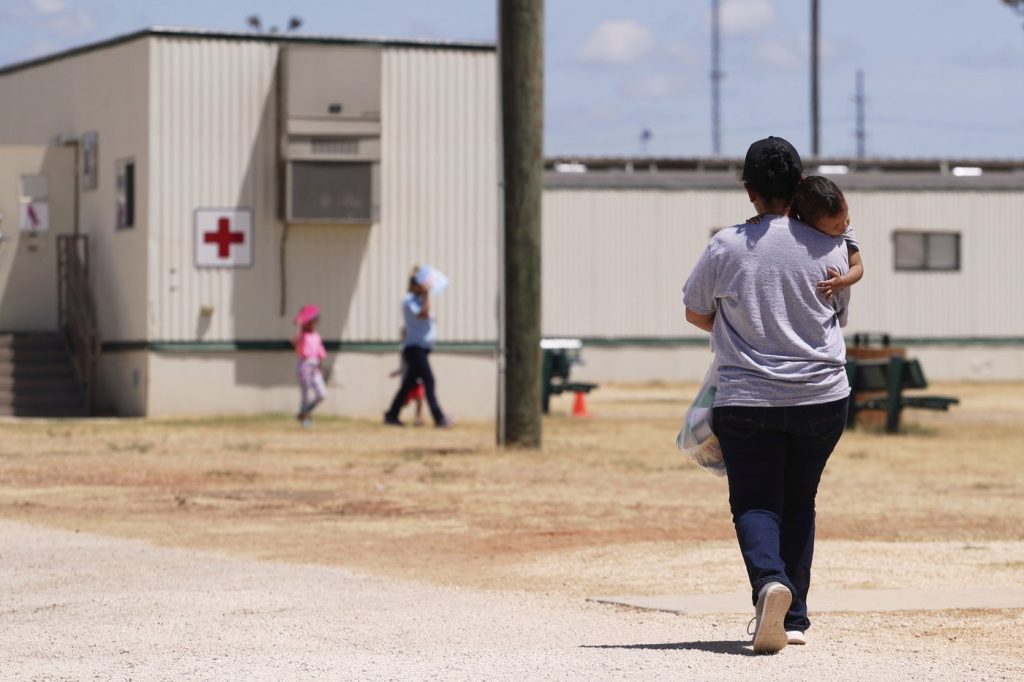On Friday, a federal judge in Los Angeles will hear a pivotal request from the Trump administration aimed at dissolving a long-standing policy that has governed the conditions for immigrant children in federal custody for nearly three decades. This policy, known as the Flores agreement, sets forth critical standards regarding the length of detention and the living conditions for these vulnerable populations.
U.S. District Judge Dolly Gee will evaluate the administration's motion to terminate restrictions which limit how long Customs and Border Protection (CBP) can hold immigrant children to a maximum of 72 hours, after which these minors are transferred to the U.S. Department of Health and Human Services (HHS). The Flores agreement has been essential in mandating that children be held in safe and sanitary conditions, with provisions for third-party inspections of CBP facilities to ensure compliance.
Advocates dedicated to the welfare of immigrant children are urging Judge Gee to maintain these protections. They have presented compelling testimonies from immigrants held in family detention centers, with harrowing accounts of children witnessing violence over basic resources, inadequate medical attention, and prolonged periods of distress. Such testimonials emphasize the dire conditions reported in family detention facilities in Texas.
The Trump administration argues that significant improvements have been made since the Flores agreement was established in 1997. In their motion, they claim that the government has implemented new standards and policies for the custody of immigrant children that align with both legislative mandates and the stipulations of the Flores agreement. They assert that the living conditions for these children have markedly improved since the historical issues that led to the lawsuit over four decades ago.
The Flores agreement serves as a critical safeguard for all immigrant children in U.S. custody, encompassing those traveling alone and those accompanied by their parents. Following the initial 72-hour detainment by CBP, custody transitions to HHS, which is subject to oversight requirements under the agreement.
Last year, under the Biden administration, there was a successful endeavor to partially terminate certain aspects of the agreement. Judge Gee ruled that the special court supervision could end once HHS assumes control, although she maintained some exceptions to ensure oversight for specific facilities catering to children with heightened needs.
Despite these claims of improvement, advocates allege that current practices have resulted in children being held in detention for longer than the prescribed limits of the Flores agreement. Reports from CBP indicate that, in March and April, 213 children were detained for periods exceeding 72 hours, with 14 children, including toddlers, confined for over 20 days during April. These alarming figures were cited alongside testimonies from families who experienced the conditions within family detention centers in Texas.
Furthermore, if Judge Gee decides to terminate the settlement, the ramifications would extend to restricting third-party inspections of detention centers, potentially obscuring oversight of conditions within these facilities. The federal government is also seeking to expand its immigration detention capabilities, including plans for additional centers such as the one in Florida referred to as "Alligator Alcatraz," which has drawn criticism and allegations of constitutional rights violations against detainees.
This upcoming hearing represents a crucial juncture in the ongoing debate over the treatment of immigrant children within the U.S. immigration system, as advocates and government officials grapple with the balance between enforcing immigration laws and ensuring humane treatment of vulnerable populations.











